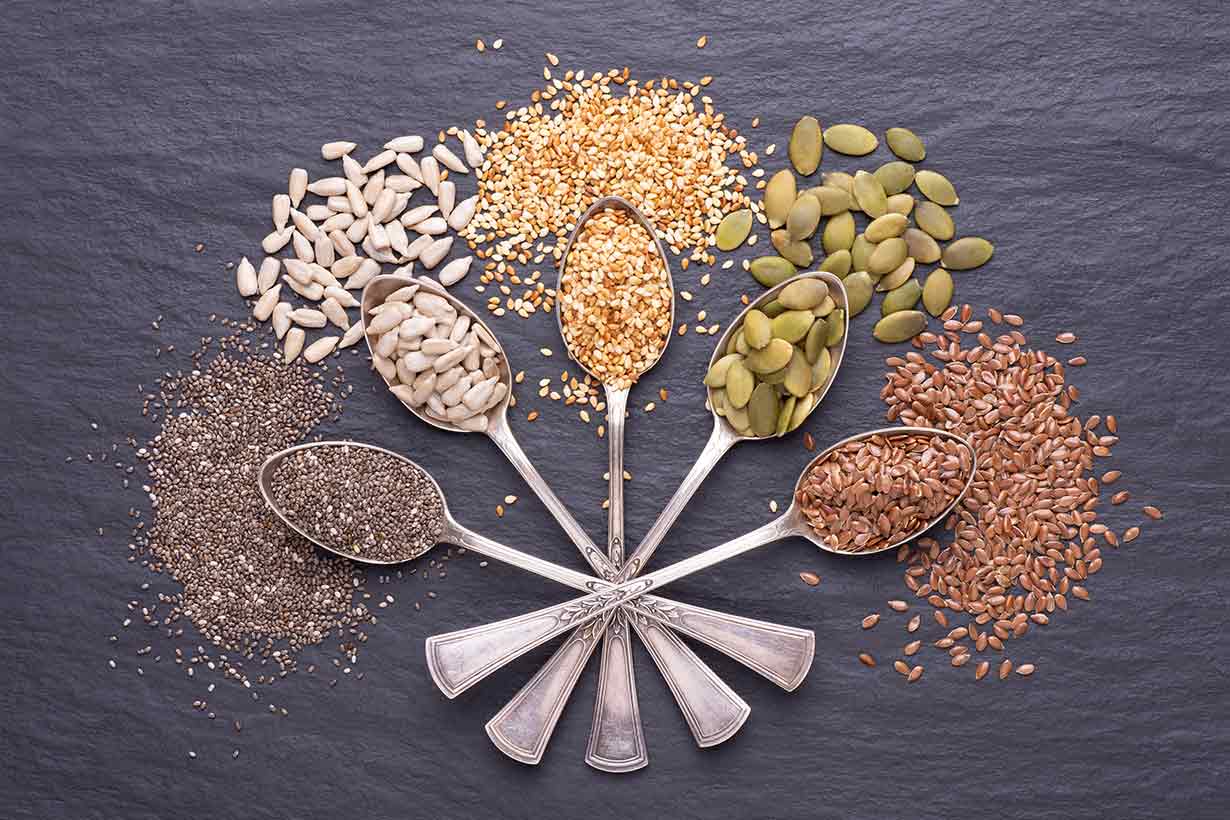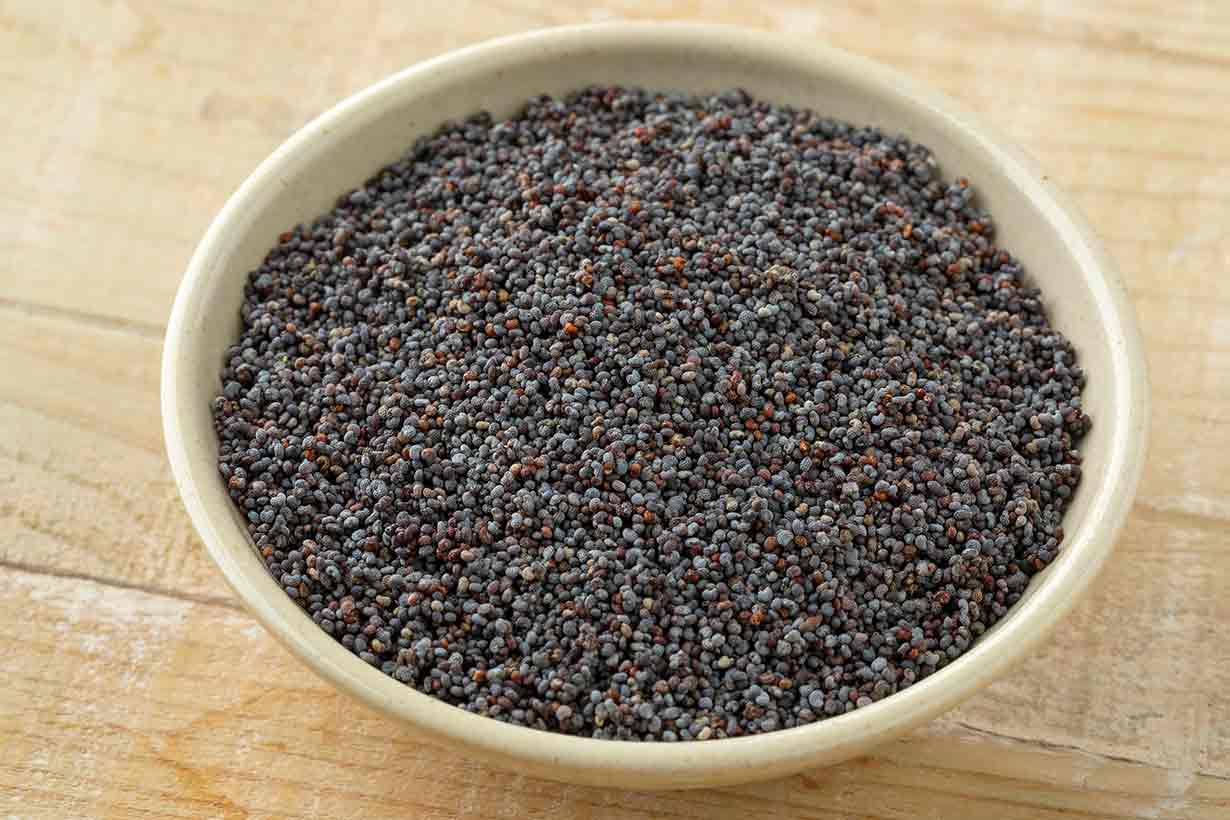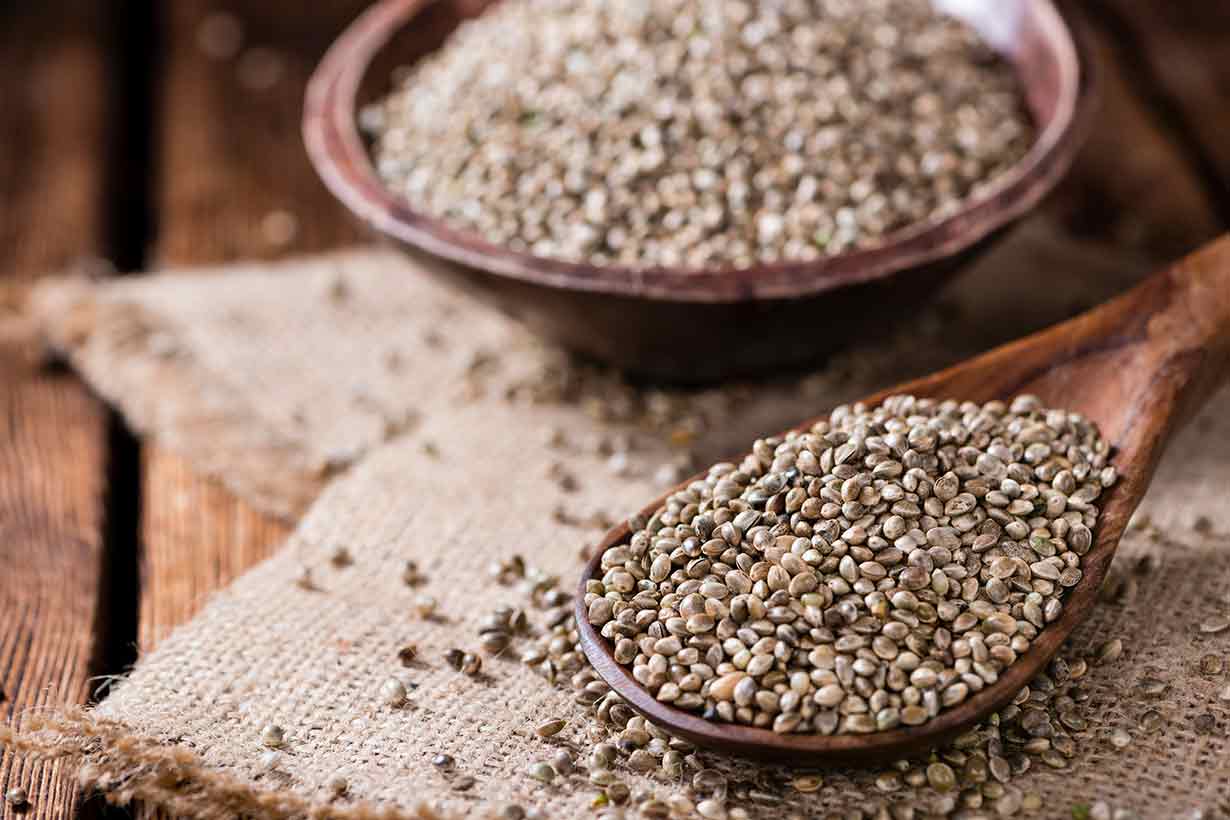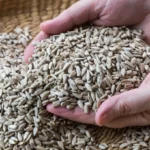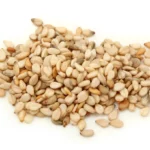Flax seeds are small edible seeds that are a rich source of fiber, protein, and healthy fats.
This article provides a complete guide to flax seeds, their nutritional values, potential benefits and downsides.
What Are Flax Seeds?
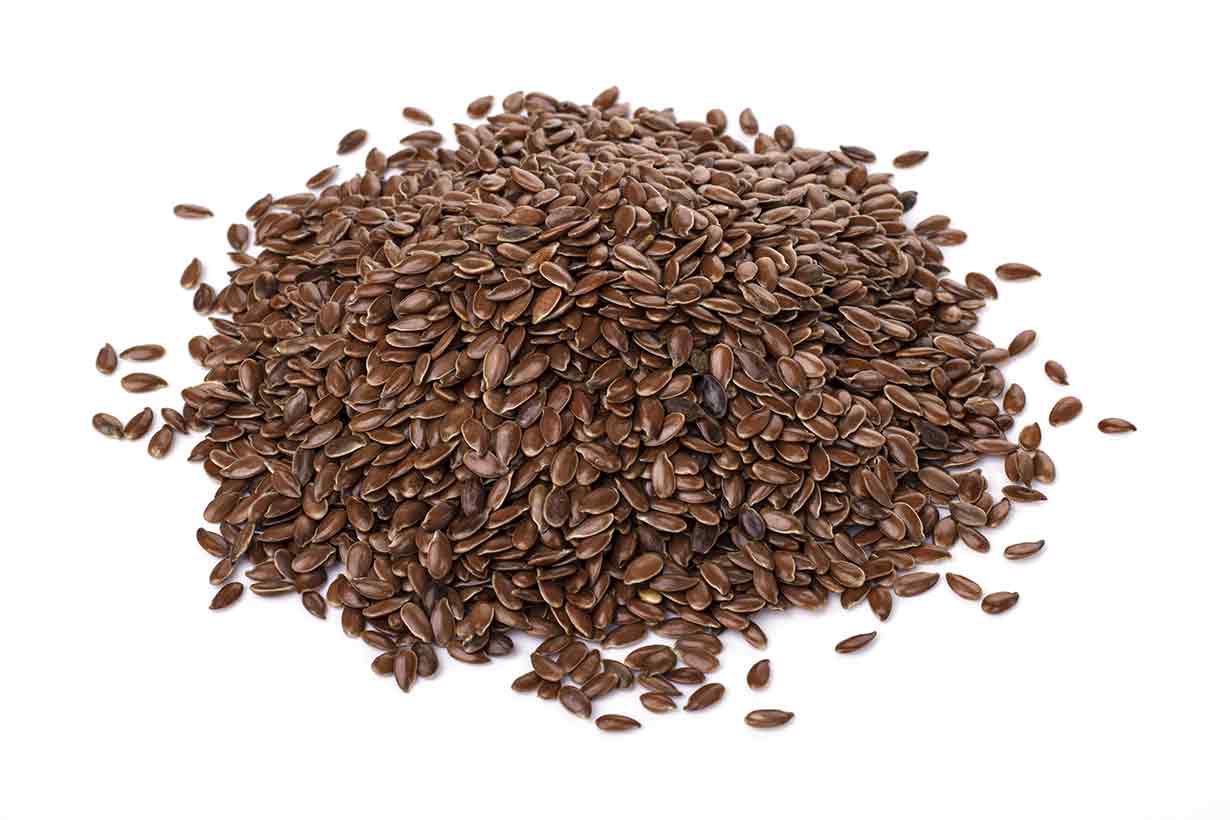
Flaxseeds are the edible seeds of the flax plant, which is otherwise known by its botanical name of Linum usitatissimum. These seeds may also be referred to as linseed (1).
Two primary types of flaxseed are available: brown flax and golden/yellow flax. Although the two have a slightly different appearance, they have similar nutritional values (2).
Flaxseed production happens around the world, but as of 2018, Canada, Kazakhstan, and Russia are the predominant global producers (3).
There are a variety of flax products available, and these include whole flax seeds, ground flax, and flaxseed oil.
Flaxseed is generally consumed for its nutritional properties and perceived health benefits, which this article will examine in further detail.
Nutrition Facts
According to the USDA’s nutrition database, flaxseeds provide the following nutritional values per ounce (28-gram) serving (4).
| Name | Amount |
|---|---|
| Calories | 151 kcal |
| Carbohydrate | 8.2 g |
| Fiber | 7.7 g |
| Sugars | 0.4 g |
| Fat | 12.0 g |
| Saturated | 1.0 g |
| Monounsaturated | 2.1 g |
| Polyunsaturated | 8.1 g |
| Omega-3 | 6470 mg |
| Omega-6 | 1670 mg |
| Protein | 5.2 g |
As shown in the table, flaxseed is a good source of fiber, polyunsaturated fatty acids, and protein.
With more than 5 grams of protein per ounce serving, flax seeds are one of the better plant-based protein sources.
Vitamins and Minerals
The following sections show the vitamin and mineral content; daily values have been calculated using the USDA database and the FDA’s published daily values (4, 5).
Vitamins
- Thiamin (B1): 39% of the daily value
- Vitamin B6: 8% DV
- Folate: 6% DV
- Pantothenic acid (B5): 6% DV
- Niacin (B3): 5% DV
- Choline: 4% DV
- Riboflavin (B2): 4% DV
- Vitamin K: 1% DV
- Vitamin E: 1% DV
- Vitamin C: <1% DV
Minerals
- Copper: 39% DV
- Manganese: 30% DV
- Magnesium: 26% DV
- Phosphorus: 15% DV
- Selenium: 13% DV
- Zinc: 11% DV
- Iron: 9% DV
- Calcium: 6% DV
- Potassium: 5% DV
- Sodium: <1% DV
Flax seeds May Lower Blood Pressure
There are several compounds in flaxseed that are bioactive and may influence blood pressure. These compounds include fiber, polyphenols, and omega-3 fatty acids (6).
On this note, numerous studies have demonstrated that flaxseed consumption may have a beneficial impact on blood pressure levels:
- A systematic review and meta-analysis of 14 controlled trials found that flaxseed intake slightly lowered systolic blood pressure (-1.77 mm Hg) and diastolic blood pressure (-1.58 mm Hg). These trials featured whole flax seed doses that ranged from 30 grams to 50 grams per day (7).
- Over a six-month randomized, controlled clinical trial involving 96 participants with hypertension, 30 grams of flaxseed per day had a clear blood-pressure-lowering effect. Compared to the control group (who consumed a mix of dietary oils, wheat, and bran), the flaxseed intervention group demonstrated significant reductions in blood pressure (8).
- It is thought that flaxseed consumption may lower blood pressure through its effect on decreasing plasma oxylipin levels (8, 9).
- A further systematic review and meta-analysis of 15 trials involving 1302 participants found that flaxseed intake significantly reduces systolic and diastolic blood pressure, with the effects becoming more substantial in trials that have a duration longer than 12 weeks (10).
Flaxseed Intake Reduces LDL Cholesterol Levels
High levels of LDL cholesterol (LDL-C) is a recognized risk factor for cardiovascular disease (11).
Similar to other seeds such as poppy seeds, flax seeds contain a large amount of fiber, which can lower LDL-C levels.
Per ounce serving, flaxseed offers an impressive 7.7 grams of total fiber; approximately two-thirds of this is insoluble fiber, and the remainder is soluble (4, 12, 13, 14).
In this regard, a meta-analysis of twenty-eight clinical intervention trials showed a significant impact from daily intake of 20 to 50 grams of flaxseed on lowering LDL cholesterol levels (15).
Furthermore, a year-long randomized controlled trial examined the impact of flaxseed supplementation on 58 patients with peripheral artery disease. This study showed that 30 grams of flaxseed per day had reduced circulating LDL-C levels by 15% as early as one month after the trial commenced (16).
High Omega-3 Content
Flax seeds contain large amounts of omega-3 in the form of alpha-linolenic acid (ALA) (17).
ALA (found in plant foods) is not as bioavailable as docosahexaenoic acid (DHA) and eicosapentaenoic acid (EPA) from seafood. This is because ALA first has to be converted into DHA and EPA by the human body, and the conversion rate can be as low as 8% for EPA and 0-4% for DHA (18, 19).
However, even despite these low conversion rates, the high absolute amounts of ALA mean flaxseed can still be a significant dietary source of omega-3. Per ounce serving, this ALA omega-3 content is approximately 6.5 grams (4).
In contrast, observational data from the National Health and Nutrition Examination Survey (NHANES) demonstrated that the average intake of ALA, EPA, and DHA in the United States was only 1.4g, 41mg, and 72mg per day, respectively (20).
Several studies have shown that a higher intake of ALA, as found in flaxseed, may be associated with slightly lower cardiovascular disease incidence and cardiovascular events. However, a recent Cochrane systematic review rated the evidence behind these associations as only “weak to moderate” (17, 21, 22).
Overall, flax seeds are one of the better plant-based sources of omega-3 alongside hemp seeds, chia seeds, and microalgae.
Flaxseed Supplementation May Decrease Blood Glucose and Insulin Levels
Primarily due to the fiber content of flaxseed, increased consumption may help to lower postprandial blood glucose and insulin levels.
Since flax seeds contain significant amounts of fiber and are a low-glycemic food, they can help to blunt the blood-glucose response following a meal. This same effect has also been seen in pumpkin seeds.
Several studies have looked into the effect that flaxseed has in this area; here is a summary of research findings:
- A systematic review and meta-analysis of 25 randomized controlled trials found a significant correlation between flaxseed supplementation and lower fasting blood sugar and insulin levels as well as increased insulin sensitivity (23).
- Flaxseed use can be beneficial for people with prediabetic blood sugar levels. In a randomized trial involving individuals with pre-diabetes, increased daily flaxseed consumption decreased blood glucose and insulin levels. Additionally, insulin sensitivity improved (24).
Flaxseed Supplementation May Help To Treat Constipation
Constipation can be a complicated issue with numerous potential causes and solutions.
However, a meta-analysis on dietary fiber consumption and its impact on constipation showed that dietary fiber intake could significantly increase stool frequency (25).
As a significant source of both soluble and insoluble fiber, flax seeds can both encourage stools to absorb water and have a bulking effect.
Research findings from several human trials support the use of flaxseed as a potential aid for individuals with constipation:
- In a randomized controlled trial, 53 participants were assigned to receive either 10 grams of flaxseed or a placebo every day for 12 weeks. At the end of the 12-week trial, the flaxseed intervention group had significantly lower constipation symptoms (26).
- A randomized trial gave 90 participants with functional constipation either 50 grams of flaxseed or a serving of lactulose (a constipation treatment solution) every day for four weeks. At the end of the period, both groups had significantly decreased constipation symptoms. However, flaxseed supplementation was slightly more beneficial, and it increased defecation frequency by 2-7 times per week (27).
A Source of Polyphenols
Flaxseed contains a range of bioactive compounds called polyphenols.
Among these compounds, flaxseed provides large amounts of hydroxycinnamic acids and lignans (28, 29).
It is worth noting that flaxseed is the most significant dietary source of lignans. These compounds have been associated with reduced cardiovascular risk, but there is only weak evidence for this at present, and more research is necessary (30).
Based on animal studies, lignans concentrated from flax seeds also appear to have a blood-pressure-lowering effect, which supports their potential cardiovascular benefits (31).
Flax seeds Are Satiating
Another potential benefit of flax seeds is the satiating and appetite suppressive effects they can have.
In a recent randomized controlled trial, adding flaxseed (with a total of 2.5 grams of fiber) to a morning drink increased feelings of satiety and reduced subsequent energy intake over the day.
To be specific, the flaxseed group consumed 2937 calories over the day. This amount was much less than the 3214 calorie intake of the control group whose drinks did not contain flax (32).
Also, another small trial found that consumption of fiber from flaxseed may reduce appetite in young male participants (33).
Potential Downside: Gastrointestinal Discomfort?
As shown in this article, flaxseed contains a good range of nutrients and may offer several benefits.
However, it has been linked to gastrointestinal discomfort in some cases.
While this is not a problem specifically with flaxseed alone, suddenly adding significant amounts of fiber can sometimes cause gastrointestinal complaints such as abdominal pain, bloating, and gas for some individuals. This is particularly the case when there is a very quick dietary change (34, 35, 36).
For this reason, it may be better to slowly add flax to the diet rather than suddenly adding a large amount overnight.
Ways To Eat Flaxseed
There are numerous ways to use flaxseed, but here are a few simple ideas:
- Eat them whole: whole flax seeds can be eaten as a snack in a similar way to nuts or any other seed.
- Sprinkle them into food: ground flaxseed can be added to porridge, soups, stews, and yogurts to increase their nutritional value.
- Use them in baking: adding ground/whole flax seeds to bread or other bakery products can increase the fiber, protein, and essential fatty acid content. Additionally, flax will help to give baked goods a firmer texture.
- Smoothies: blend some flaxseed into a yogurt and fruit smoothie to add fiber, protein, and fats.
Final Thoughts
All in all, flax seeds offer a good amount of nutritional value.
These little seeds provide significant amounts of protein, dietary fiber, and omega-3. They also supply a decent range of essential vitamins and minerals.
As a bonus, flaxseed is versatile and easy to use in a wide range of ways.

